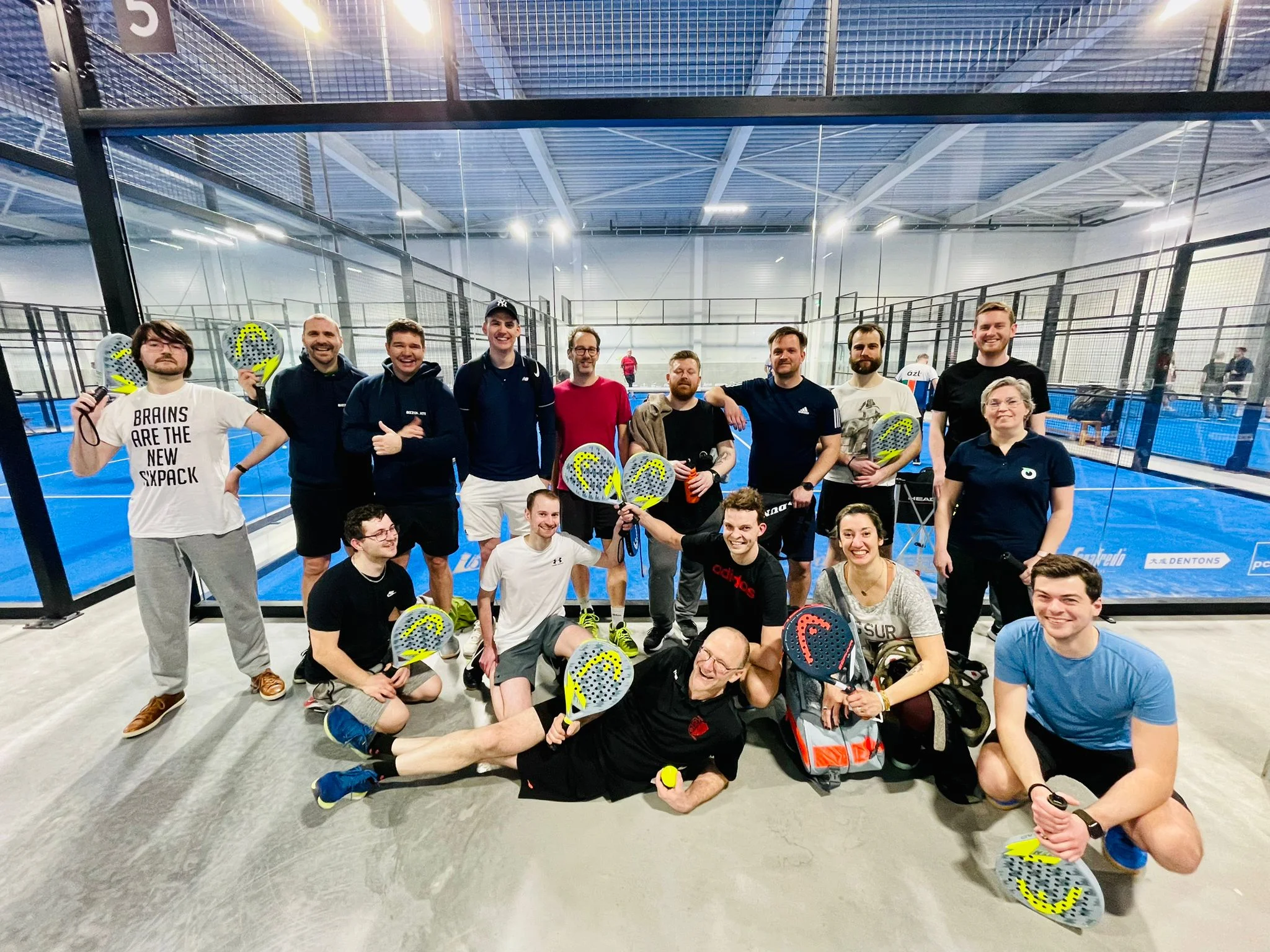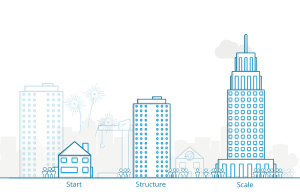Work with happy and energetic colleagues? Here’s what we do about vitality at Bizzomate
24 January 2024 • Blog

At Bizzomate, we are constantly looking at how we can make our organization an even better place to work. That’s why Bizzomates get time to volunteer, time for personal development and we work in teams without managers.
In addition to all this, a good dose of energy is important to experience job happiness, and vitality plays an important role in this. All the more reason, then, to list in a new blog the initiatives we are taking to increase physical and mental vitality, among other things, and the preconditions needed to make it a success.
Physical vitality
In order to perform well and make sure you are comfortable in your own skin, it is important that a person also feels good. Movement plays an important role in this. Iris Beeren, happiness officer at Bizzomate: “We have therefore set up a BizzoFit team. This team of three colleagues takes all kinds of initiatives to increase vitality at Bizzomate. With all colleagues who enjoy this, we discover a new sport together every month. Padel, for example, was a great success. A group of twenty colleagues have already played padel with each other several times after being introduced to the sport. Besides making you feel fitter, it is also a way to get to know your colleagues in a different way, which in turn contributes to togetherness. Furthermore, we try to increase vitality with a weekly stretch quarter. In doing so, everyone can connect online via Teams to get moving with each other.”
“We also regularly share health tips on our ‘wellbeing wednesday,’ make sure there is plenty of varied food in the office on a regular basis, and employees can volunteer to participate in ASR Vitality. With that, you save points for the ‘Vitality webshop’ by exercising regularly.”
“Every employee is concerned with his or her physical vitality in a different way. Some colleagues are very athletic, while others are more concerned with their correct working posture by alternating between sitting and standing in their work, for example. Therefore, we do not use a ‘one size fits all’ approach but encourage you to work on this in as many ways as possible, in a way that suits you. After all, when the motivation comes from within yourself, you spend time on this more quickly.”
Spiritual vitality
Equally important is the mental well-being of employees. Iris: “This is often even more personal. Providing a psychologically safe workplace is an important prerequisite for this. By doing so, you create the trust needed to share personal matters with your colleagues. As standard, every colleague is also linked to a happiness officer who goes over with you every quarter how your work week is structured, what energizes you and how you can make your work even better match your character and talents.”
“As happiness officers, we also encourage colleagues to tell us if they are struggling with something. If we know that, we can respond flexibly to the situation and where possible offer an appropriate solution. For example, sometimes it’s good to take a moment of rest at home and rearrange your hours to take a breather.”
“To further support the improvement of mental vitality, we offer all colleagues who need it a program with an external psychologist and everyone is allowed to attend an external coaching program every five years. This is a period for many people to take stock of their work. Outside help can be very valuable in that regard.”
Preconditions key to success
According to Iris, it is important for organizations that want to get started on increasing their vitality to integrate it throughout the organization. A good plan that fits your organizational culture is indispensable in this regard. “When you impose this from management on your employees, many colleagues will drop out. Communicate from the perspective of the employee and ensure involvement in all layers of the organization. This can be done by looking for ambassadors of higher vitality, who can make other colleagues enthusiastic. This way you ensure a snowball effect. Furthermore, executives can get their employees on board by serving as role models, for example, by joining sports themselves to show that it is really important to spend time on it.”
“It sends a strong message to facilitate activities that increase vitality during working hours. This underlines its importance to the organization and you are not asking your colleagues to do this on their own time. The most important thing is that you don’t approach vitality from separate initiatives, but from a thoughtful and holistic plan in which you are clear about the goal and the opportunities you want to offer to your employees. In this way, it really becomes part of your organization and you ultimately get more employees into it, resulting in a more vital workforce.”




